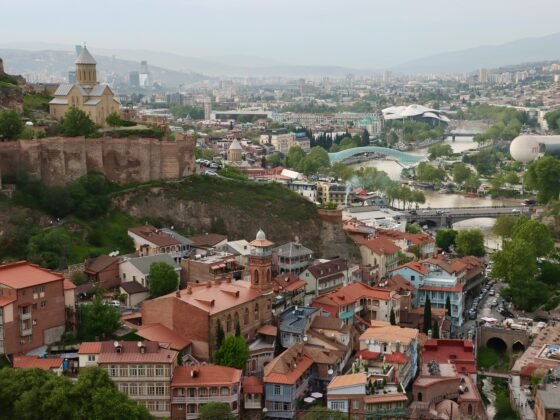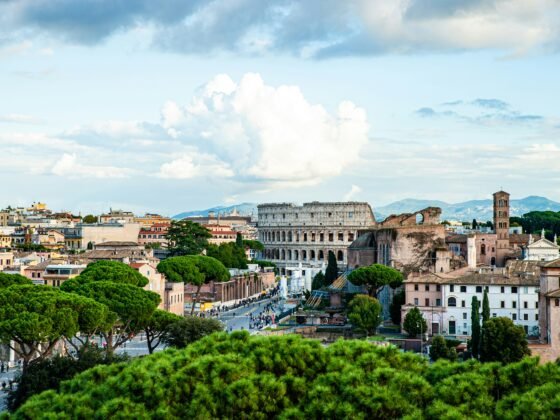In terms of places to visit in Europe, we are spoilt for choice – there is a wealth of city break opportunities virtually on our doorstep. And according to a survey carried out by Holiday Gems, for the new generation of holidaymakers, city breaks are coming out on top as a favourite way to holiday. Around 65 per cent of 18-24 year olds have already booked or are about to book a trip abroad this year.
If you’ve done Paris, Rome and Prague, 2017 should be the year of discovering the lesser-known jewels that make up the continent. With the help of the travel experts at Holiday Gems, we look at the five cities that we’re lining up for weekend breaks this year.
Reykjavik, Iceland
Nestled on the south coast of Iceland is Reykjavik, which is Icelandic for ‘Smoky Bay’. This city inhabits around two thirds of the population of the entire country, and is a thriving town rich in arts, music and nightlife.
Outside of the city parameters is like stepping onto another planet. Take a 4×4 tour of the lunar landscape that surrounds Reykjavik and discover a land of fire and ice – roaring waterfalls, sulphurous geysers bubbling away, snowcapped volcanoes and naturally heated caves to explore.
For a day out, visit the Blue Lagoon and relax in the milky blue geothermal waters that are rich in minerals that nourish the skin. When you’ve done that, relax with a steaming mug of coffee and learn about Icelandic folklore and discover how elves and other mythical figures are regarded as very real entities in this strange and wonderful country.
Riga, Latvia
Divided by the river Daugava, the city of Riga is one of the oldest and most beautiful in Eastern Europe.
The city is experiencing something of an upsurge over the past few years, which has been helped by a generation of Latvians returning from years abroad to settle down and start families and businesses. This has helped develop a huge cultural arts movement and experimental and artisan food scene including microbreweries and tea makers.
The Riga experience is different in winter than it is in the summer. During the colder months, enjoy the fairytale winding streets and cobbled lanes as the snow gently falls. From May and June, the city is transformed into a place of festivals, bustling beer gardens and short trips to the gorgeous beaches of Jurmala, 30 minutes away.
Innsbruck, Austria
Most people use Innsbruck as a landing spot to enjoy skiing in the Tyrol Mountains. However, as good as skiing around these spots are, the city that lies at the foot of the mountain is just as beautiful and well worth exploring.
Innsbruck is stereotypically Austrian – a location awash with grand palaces, baroque cathedrals, expansive squares and pastel-coloured terraced shops. But what sets the whole thing off is the awe-inspiring Nordkette range that looms over the entire city making Innsbruck the ultimate Alpine town.
Summer brings a Sound of Music-style to proceedings – lush green meadows, hill walking, picnics and encounters with the beautiful wildlife of butterflies, frogs and rabbits while the sound of cowbells fill the air.
Wintertime is when things step up and the skiing industry kicks in, but non-skiers can immerse themselves in to the Christmas markets, hot chocolates and hot tartiflette whilst enjoying the snow-covered landscape.
Split, Croatia
There’s no better place to experience the Dalmatian Coast than in Croatia’s second biggest city. Most things take place outside in Split – cafes, bars, restaurants, nightlife all take places in the squares, terraces and waterfront of the town.
Split is thousands of years old, and the crumbling ancient buildings stand in contrast to the verdigris sea. It’s a beautiful city, with the old town being a draw to visitors.
Spend time visiting the many vineyards around the region, hiking around the mountains and bathing in the waterfalls, and take a boat out on the picturesque Plitvice lakes. We particularly love the cave tours that take place.
Turin, Italy
Turin has been likened to Paris, and while the parallels are there, in the elegant boulevards and 19th century architecture, there is a distinctly Italian feel as well – with piazzas, bridges and porticos appearing like little reminders of its true identity.
Like Paris, there is a wealth of sumptuous palaces, art nouveau mansions and a huge focus on cuisine. And while the city is well known for its cars and (very delicious!) chocolate, there is a lot more to Turin. It’s expansive history, with its past as Italy’s first capital, home of the House of Savoy and the Kingdom of Piedmont can all be discovered in the many museums and exhibitions that are dotted around the city.
Turin is a great to walk around – the Romans built it, like many Italian towns, on a grid formation. The river Po to the east and the Alps to the north of the city provide helpful compass points for the wandering traveller. But outside the city limits is a wonderful landscape of mountains, forests and vineyards. The Gran Paradiso National Park is well worth a visit.












